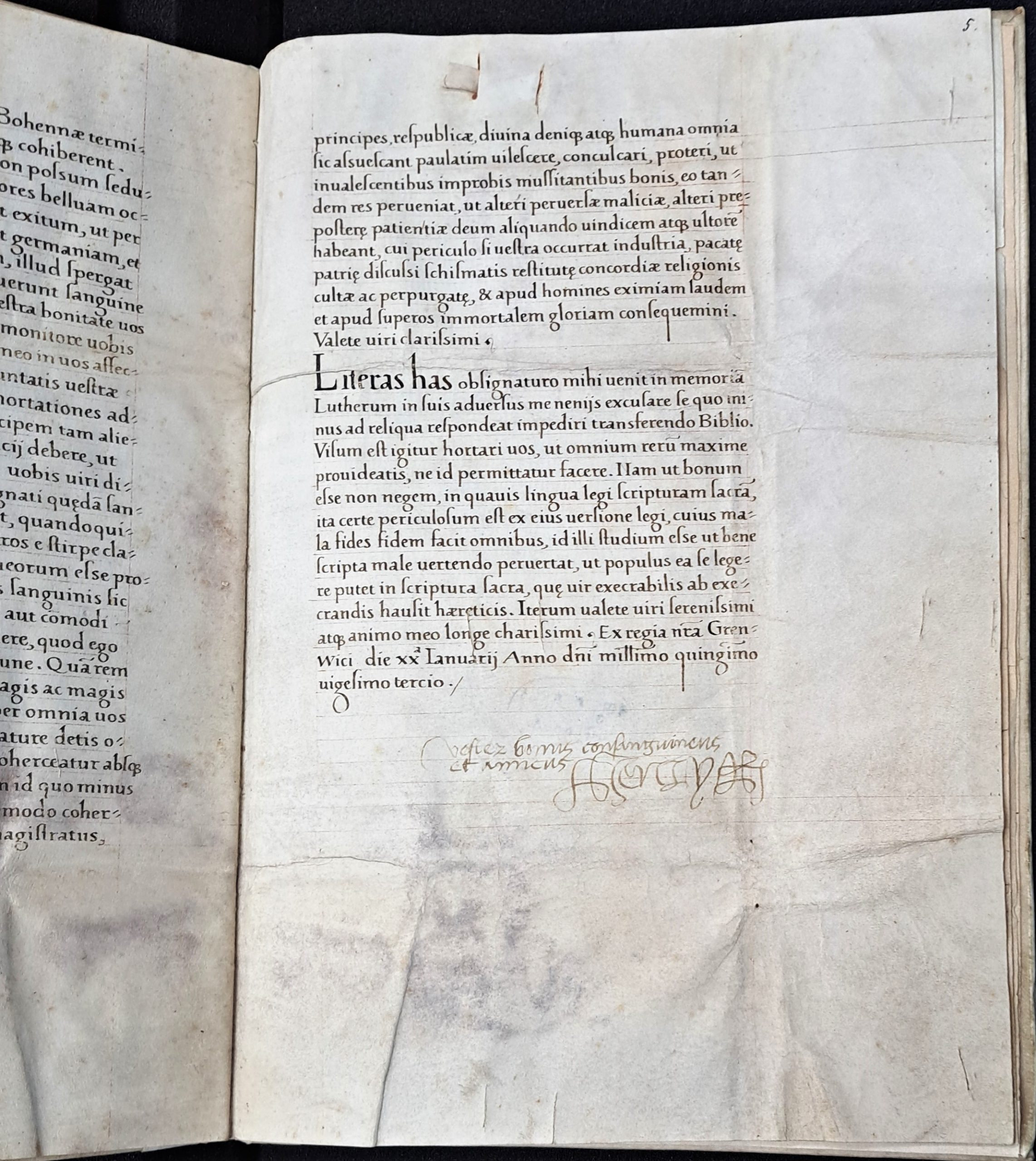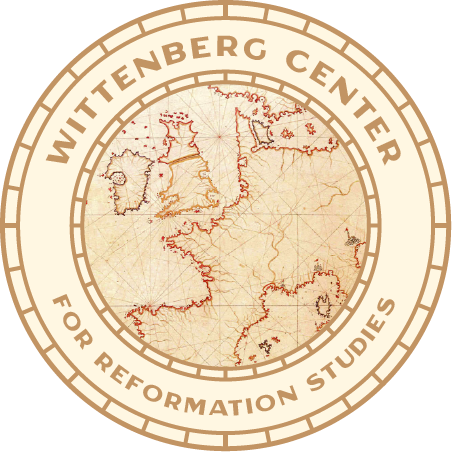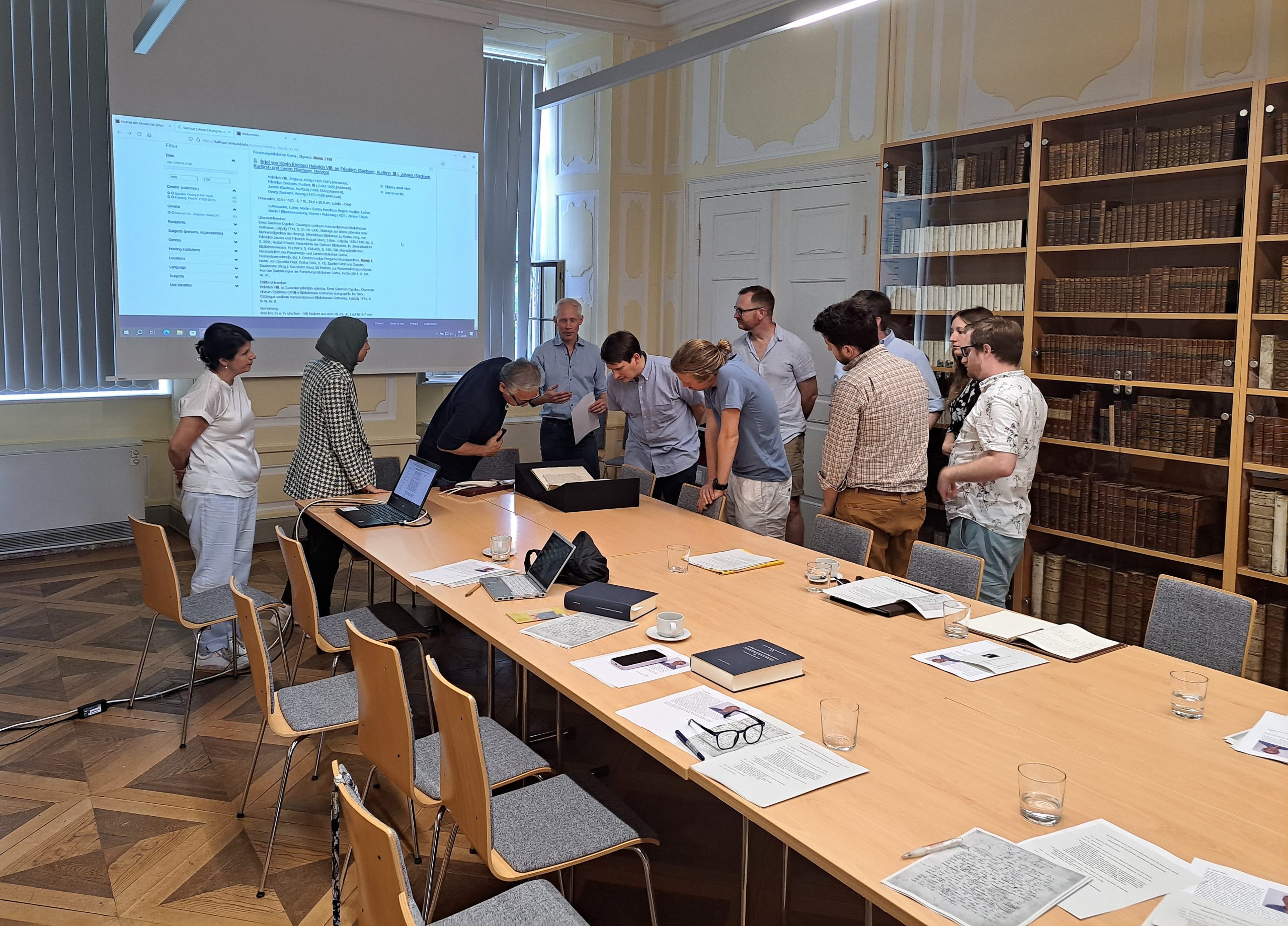The second week began with work on a German and a Latin manuscript. Margarethe Kuffner’s 1544 letter to Philipp Melanchthon’s son provided insight into a 16th-century Wittenberg love story, and Martin Luther’s 1521 letter to Emperor Charles V introduced a key document of the early Reformation. After a week of working with the manuscripts, things went much more smoothly. It became clear that the greatest challenge in working with manuscripts is not so much recognizing the letters and resolving the abbreviations, but knowing the language.
On Tuesday the group went to the Research Library (Forschungsbibliothek) in Gotha. Dr. Daniel Gehrt gave a tour of the library and presented important holdings related to the history of the Reformation, such as the papers of the Wittenberg reformer Paul Eber and documents related to the life of the Gotha reformer Friedrich Myconius. Using Luther’s printed manuscript of the Book of Jeremiah and a letter from Melanchthon containing information about the English King Henry VIII as examples, the group practiced transcribing manuscripts, with the original available in the seminar room. The group gained insight into the diversity of the Research Library’s rich holdings and the special opportunities offered by working in such a library.

Original letter from King Henry VIII of England to the Saxon rulers from 1523 (Memb. I 108)


